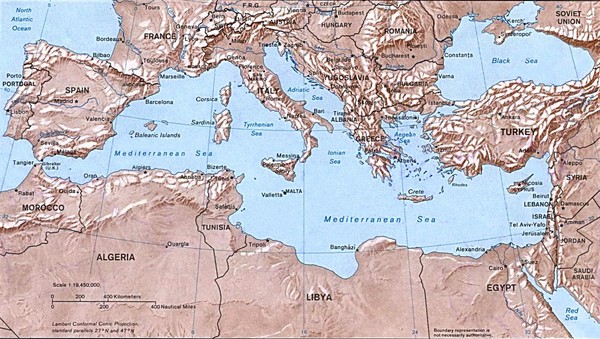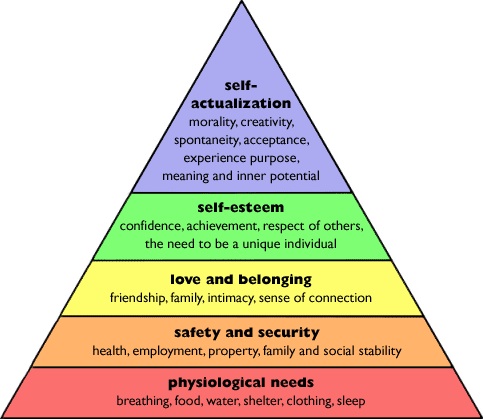I want to be a responsible citizen, which means I have to vote in the forthcoming local (mayoral) and European elections, but my heart isn't in it. I know for a fact that whoever I vote for - party or candidate - is not going to do anything for me personally, or even for my family. My only option is to put my hopes on the person/party that I believe may do some good for the common interest. But the way things look now, especially in terms of the mayoral elections, there seems to be little hope of seeing this happen - there are few projects that I can envisage which will be done for the common good. It's clearly a case of personal interests. The mayoral elections convey this sense of a dead cause for me, after what I saw happening in town last weekend.
The main square of Hania is written as "Plateia 1866" (Piazza 1866, after
an important historical period) in maps, but to the locals, it's called "Nea Katastimata", meaning 'new shops', because this was one of the first parts of the town to be rebuilt after World War II. Plateia 1866 remains a central part of the town to this day, as it is the main passing point for nearly everyone coming into the town: the central bus station is located only a few metres away, most local buses leave from here, the main taxi rank is also based here, and the road leading to the Venetian harbour starts from the square. Thus, Plateia 1866 is the kind of place that will attract candidates' election campaigns because they can shake a lot of people's hands.
As I was leaving the town on Saturday after doing my street market shopping (despite the nationwide strike action called by the street market unions over new legislation governing them, it was business as usual for Hania's street markets), I passed by the taxi stand looking out for my husband's cab, just to say a 'kalimera' and catch up with the morning's news. He wasn't there, so I decided to cut through the square to get to my car.
Just as I was about to walk through the square, a tall man wearing a suit and tie stopped me in my tracks. I almost felt like he was going to walk over me, as if he could not see me due to his height. Before I could react, he had shoved his arm under my nose and his palm grabbed my hand, or at least, the bit that he could touch, because each of my palms was wrapped around the handles of plastic bags containing mizithra, koulouria and tomatoes.
My initial reaction to a stranger trying to touch me on the road is to hug my handbag which was hanging off my shoulder. Something told me that this man (and his entourage: three smiling men wearing dark sunglasses) was not after my bag. My first thoughts went to the tomatoes - I was hoping that his meaty palms would not squash them. Imagine the mess it would cause. Worse still, those tomatoes were t that moment irreplaceable. I couldn't imagine this man walking all the way back to the laϊki to buy them for me.
The encounter was a brief one. The tall man did not wait for me to put my bags down to shake his hand. He did not even look at me. Perhaps he had already sussed me out ('she's undecided'); maybe he thought I looked like a foreigner ('she's not a registered voter'); most likely, he could detect my ignorance ('she doesn't know me'). Whatever it was that he had on his mind, he continued to charge forth through the small group of people that had congregated on the square, touching everyone's hands in the time it takes you to blink once. It took me a little longer to move away from the crowd to the other side of the square...
... where I spotted the father of a classmate of my son's. He spotted me too, and called out to me: "You won't forget us, will you?" As I smiled back to him in acknowledgment, my mind still on the tomatoes, I wondered what he meant by that. I understood immediately, when I saw another tall man wearing a suit and tie. This time, I was not stopped by the suit-wearer, as it was obvious that his accomplice had done the job on his behalf. I continued on my way to the end of the road, where I was about to cross to the side where the bus station is...
... when an ex-neighbour from my early years of living in Hania nearly crashed into me. "Hey," he called out, "what about us?" He was accompanying, you guessed it, another tall suit-and-tie man, who again did not extend his hand to me, because, once again, his accomplice had done that for him.
As I walked back to my car, I wondered how seriously people took these hand-shakers. That was about their most active moment - walking among the crowds, mustering what little support they could from people whose faith in the political system has been shattered in the past four years.
What can we expect from people who wear suits and ties in a Mediterranean summer resort town like Hania? They don't create jobs - the producers of agricultural products and the owners of hotels create jobs, not mayoral candidates. They don't create community projects - in post-crisis Greece, this has happened from grass roots ventures by the people who suffered a great loss of income during the crisis. European money is allotted strictly, leaving little leeway for it to slip away unnoticed.
And what of the broken footpaths on the roads of the town? The empty plots of land overgrown with dry grasses? The derelict buildings that can no longer take any form of renovation and present both a hazard and an eyesore for the residents? The empty shops whose landlords refuse to lower the rentals so they can be filled? The roads crammed with tables and chairs for smokers to lounge about, making it difficult for the less mobile among us to move around? The suit-and-tie men will not do anything about these things, apart from allow them to remain. They will simply continue to build up their high-profile connections, and perhaps (just perhaps) "help themselves".
We belong to that class of people who have plodded on without expecting the state to care for us. We look out for each other, and remain within the law.
We don't even know our rights adequately, which is why we don't expect promises to be kept by politicians. We don't live in a place where just about anyone can become the mayor if they want. It's not just anyone who can become mayor. The suit and tie hide a particular breed of Greek male, which is out of our class.
A general state of confusion and disbelief pervades among voters as the main political parties in Greece show their true colours.
Golden Dawn is slowly being outlawed; the former
PASOK is trying to be reborn under the new name of
ELIA; newcomers to the scene lack an agenda.
SYRIZA has promised free electricity to the poor and needy, while the tax department has discovered that
people who aren't poor and needy often view themselves in this way through their application for a share of the '
social dividend' that
New Democracy is handing out. Notable examples of applications for the social dividend were provided revealed by the centre-right
Kathimerini:
- a family of 2 living in Kifissia (a 'posh' Athenian suburb) owning property valued at 3.9 million euro and 65,000 euro annual income;
- a family of 4 in the island of Mitilini with a 200 sq.m home (not including the balconies!), living expenses totalling 20,000 euro and a vehicle worth 35,000 euro;
- a family of 3 in Melissia (another posh Athenian suburb) with an annual income of 155,000 euro and a swimming pool included in the family home;
- a family of 4 in Thessaloniki with property valued at 800,000 euro and annual income of 135,000.
The above applications were all rejected. But some applications warrant further investigation:
- 6 people living in a working class suburb of Athens, who have all stated that they are handicapped by at least 67% (the percentage has to do with the way the Greek state defines mental and physical handicaps);
- a 26-year-old with a low income and low level of property ownership, who supposedly hosts 25 people in his own home, as stated in their tax declarations;
- a 70-year-old with a low income and low level of property ownership, who supposedly hosts 22 people in his own home, as stated in their tax declaration
Greece has always had a poor class, in the same way as any other country. But the meaning of being poor in one country may be quite different from that of another country: while it's true that Greeks have become impoverished, most still have a long way to go before they can truly be regarded as poor, in the meaning that they truly lack money and possessions. To date, 265,000 applications have been approved, with 334,000 rejected, while 210,000 have yet to be decided - and applications continue to be made.
I can't actually single out one party whose policies I fully agree with. But that's what it means to be a unique human being living harmoniously in a society made up of many individuals. We continue to uphold differences that make us unique, but we converge on most points. That's not quite happening yet in Greece. A few too many still think that a hand-shake will do the trick.
UPDATE: After writing this blog post, I read my morning papers, and found an a few interesting articles stating roughly the same things that I wrote about.
Protagon asked 16 mayoral candidates the following questions:
- Would you pass on the collection of rubbish to a private company?
- Would you host a gay pride parade;
- Would you build a mosque in your city?
- Would you host a cremation unit in your city?
- Are you for homosexual weddings?
- Do you believe that Christ was resurrected?
- Do you believe that state and religion should be separated?
- If you could choose just one cultural event to host in your city, which would it be?
- If you know there are gold deposits in the ground, would you allow mining?
- Which city do you hold up as a role model for your community?
Only 5 replied. That's pretty good, I thought. Pre-crisis, none would have.Some candidates are selling the same policies, eg for the tiny island of Gavdos south of Crete, a candidate is promising '
electricity and water for all houses, and transparency in the council's finances'. Aren't these things αυτονόητα? meaning 'taken for granted'? Before we move on to reforms, Nikos Dimos writes (
in the same newspaper), we need to change our way of thinking.
©All Rights Reserved/Organically cooked. No part of this blog may be reproduced and/or copied by any means without prior consent from Maria Verivaki.





















































